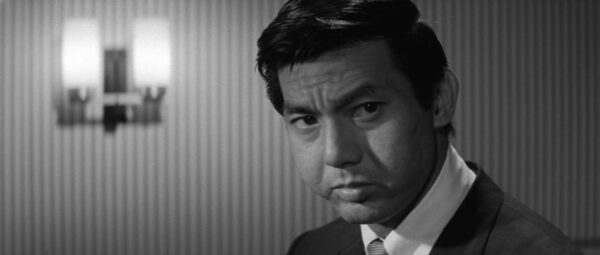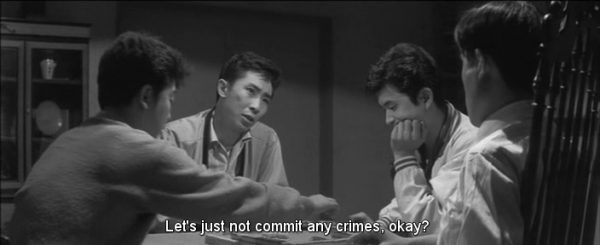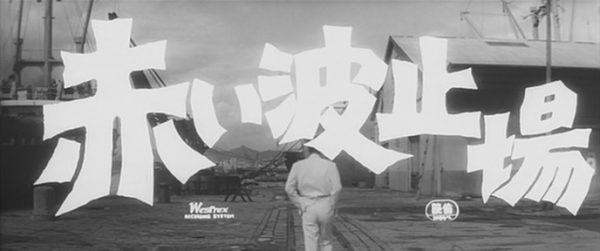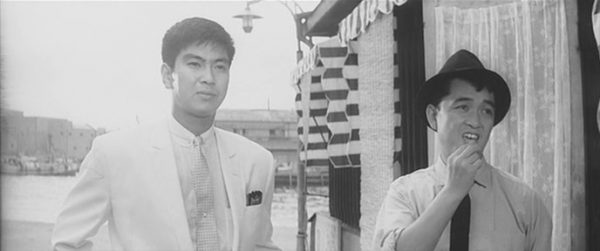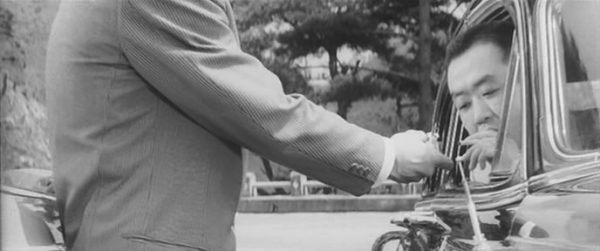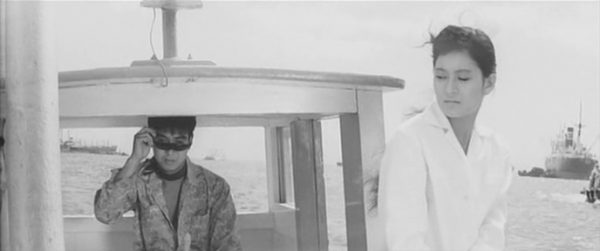Massacre Gun
aka みな殺しの拳銃 aka Minagoroshi no Kenjû aka Slaughter Gun aka Ruthless Gangster
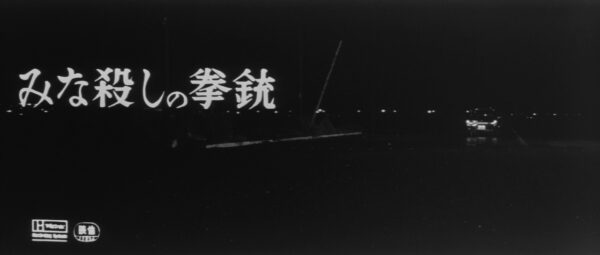
1967![]()
Written by Yasuharu Hasebe (as Takashi Fujii) and Ryûzô Nakanishi
Directed by Yasuharu Hasebe
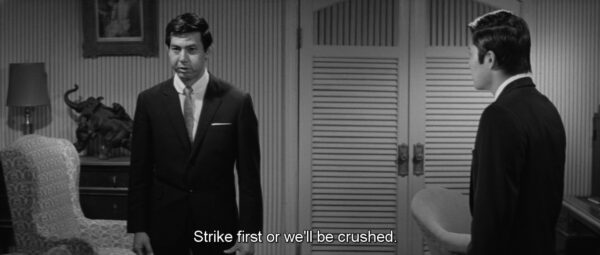
A long time ago (2017!) I saw Massacre Gun at the Roxie, but despite it being some good stuff, I was far too busy to get a proper writeup completed. This is TarsTarkas.NET, after all, where the reviews are all made up and the deadlines don’t matter, so we thought we’d just watch it again and give a nice, nuanced review from multiple viewings. So thus bursts the review of Massacre Gun!
At this point the Nikkatsu borderless action films are becoming very well represented on TarsTarkas.NET, thanks in part to a large swatch of them getting wonderful restored and subtitled releases in the West, thus making watches easy. These films have a tone that make them very good watches even though too many at once can lead to bleak feelings due to the tone. Despite that, the films are largely high quality stories crafted with care, and have a clear evolution over time before the entire genre was just dropped in favor of the Roman Pornos. From the early youth/troubled youth films to the increasingly violent and dreary action pieces, the entire genre (and their inspirations and imitators) just create so many things to talk about. There is even the side journey with our slow but study dive through Seijun Suzuki’s filmography. The director here is Yasuharu Hasebe (the amazeballs Black Tight Killers!) and he might be one of the few Nikkatsu directors to give Suzuki a run for his money in regards to interesting shots and techniques (while still showing it straight enough to not anger the bosses enough to get fired!)
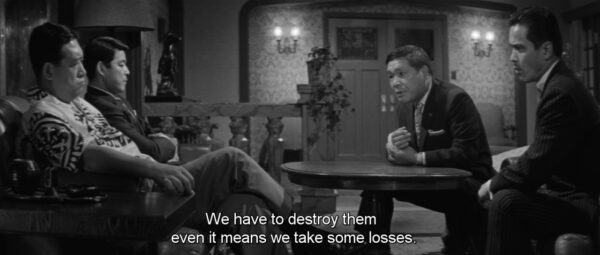
By now this is 1967, the genre is in full swing, Jo Shishido is owning the screen, and Yasuharu Hasebe is about to drop yet another required viewing film onto an eager audience with Massacre Gun! Three brothers get pushed too far by their Yakuza employers and decided to strike out on their own and strike back against the disrespect, but we all know things aren’t going to end happily for most of them. Ken Sanders crooning gives this film an amazing vibe (backed up by the ever-present boarderless action jazz, which seems to be extra juiced in this film. There are album collections of tracks from these films which are great to study or write movie articles too, trust me!) We also get a lot of gangsters feeling sorry for themselves sitting around smoking while he croons. If that doesn’t hammer the tragic life of the yakuza gangster into your brain then maybe Teletubbies is more your speed, leave the Nikkatsu flicks to us, thanks.
